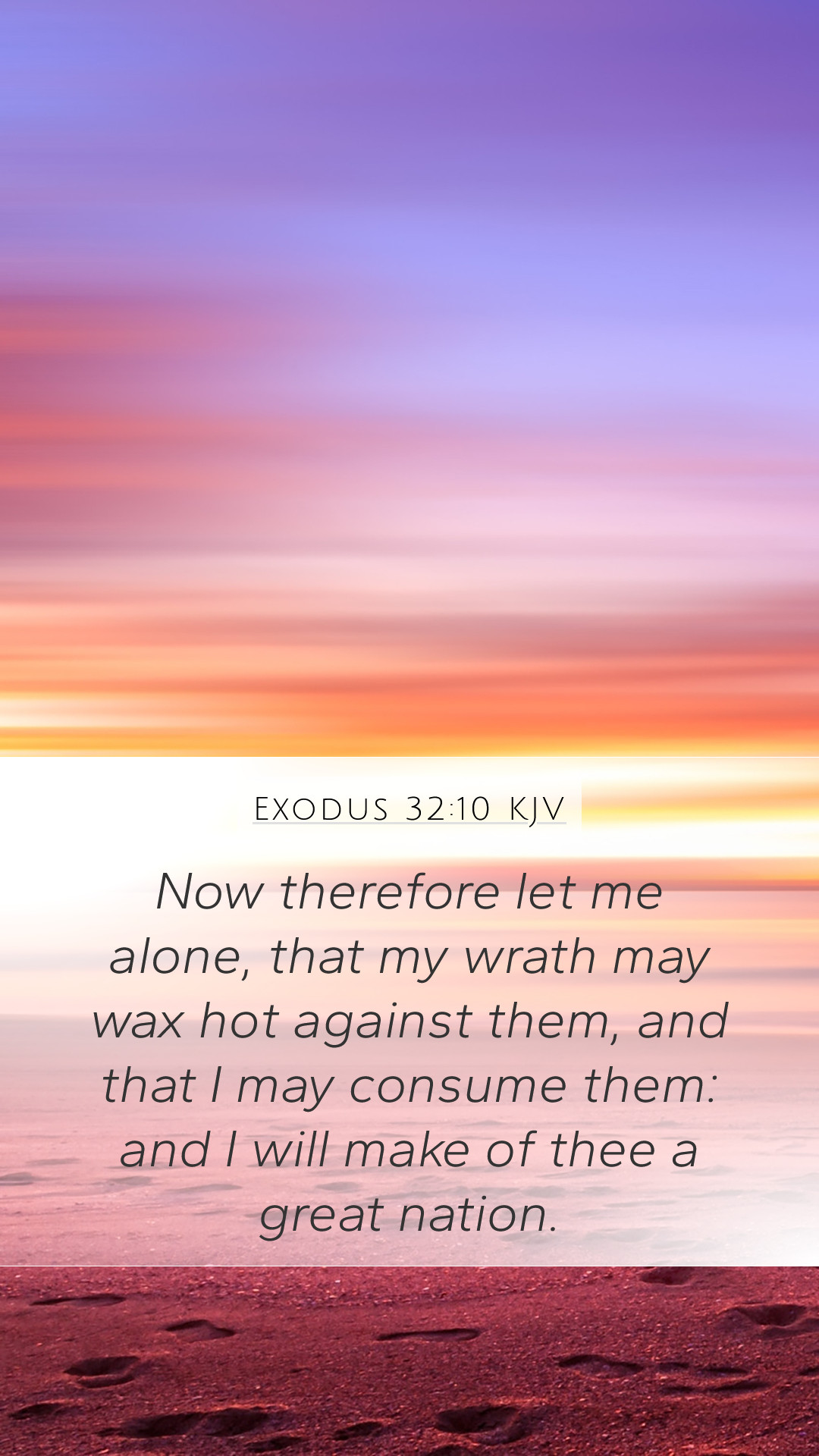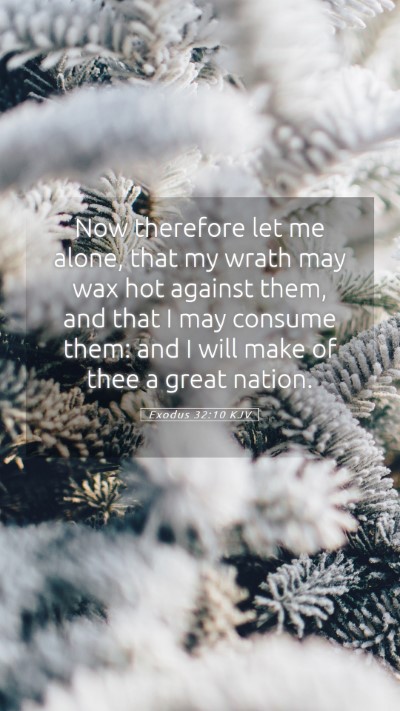Understanding Exodus 32:10
Exodus 32:10 is a significant verse in the Bible that showcases the gravity of Israel’s sin in creating the golden calf and God's response to it. This verse states:
"Now therefore, let me alone, that my wrath may wax hot against them, and that I may consume them: and I will make of thee a great nation."
This declaration from God to Moses indicates His righteous anger against the people because of their idolatry and rebellion. Below, we explore the biblical commentary from notable scholars such as Matthew Henry, Albert Barnes, and Adam Clarke, providing a thorough Bible verse interpretation and Bible verse explanation.
Summary of Insights
- Moses as the Mediator: This verse highlights the relationship between Moses and God. God expresses a desire to destroy the Israelites due to their disobedience but also sets the stage for Moses' intercession. This reflects Moses as a mediator, which is central in understanding Scripture.
- God's Wrath: Matthew Henry notes that the wrath of God is a response to sin. The phrase "wax hot" signifies extreme displeasure, and God’s intention to consume the people illustrates the seriousness of their actions.
- Divine Justice and Mercy: Albert Barnes points out that while God's wrath is called forth by humanity's sin, His willingness to forge a new nation from Moses signifies His overarching mercy. God could start anew but chooses to hold back His judgment due to Moses’ plea.
- Historical Context: Adam Clarke emphasizes the historical setting of this event, where the Israelites, having been delivered from slavery, quickly revert to idolatry. This context is crucial for understanding the severity of their actions and God’s response.
Analysis of Key Concepts
1. The Nature of God’s Anger
This verse reveals God’s attributes, showcasing His holiness and justice. God's anger is not arbitrary; rather, it is a just reaction to the idolatry that directly violates the covenant He established with His people.
2. The Role of Intercession
Moses' role as an intercessor reflects the biblical theme of praying for others. The fact that God expresses a desire to act against the people but calls for Moses' intervention is profound, highlighting the importance of prayer and mediation.
3. Theme of Covenant and Promise
The promise to make a great nation from Moses indicates that God still holds to His covenant promises. It underscores the theme in biblical exegesis that while God is just, He is also a God of covenant who remembers His promises.
Application to Daily Life
For modern readers, this verse serves as a warning against turning away from God. It beckons believers to maintain their commitment to God and be mindful of the seriousness of sin. Furthermore, it encourages intercession for others, reflecting on how we can mediate for those who stray from faith.
Cross References
- Exodus 32:9-14: This passage gives further context to God’s anger and Moses’ intercession.
- Deuteronomy 9:13-14: Moses recounts God's anger at the people and his subsequent pleas for mercy.
- Romans 9:15-16: Highlights God's mercy in choosing whom He will bless.
Conclusion
Exodus 32:10 encapsulates significant themes of sin, judgment, intercession, and the enduring nature of God's covenant. Understanding this verse within its historical and theological context enables deeper insight into Bible study lessons and the broader narrative of the Scriptures. Such insights are valuable for Bible study groups and for individuals seeking to grasp the profound implications of Bible verse meanings.


